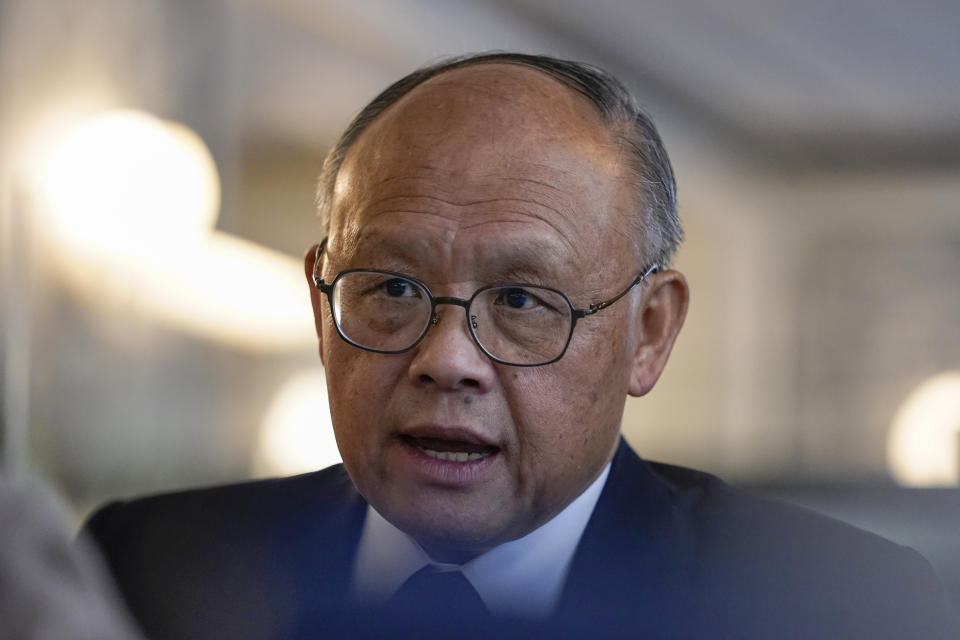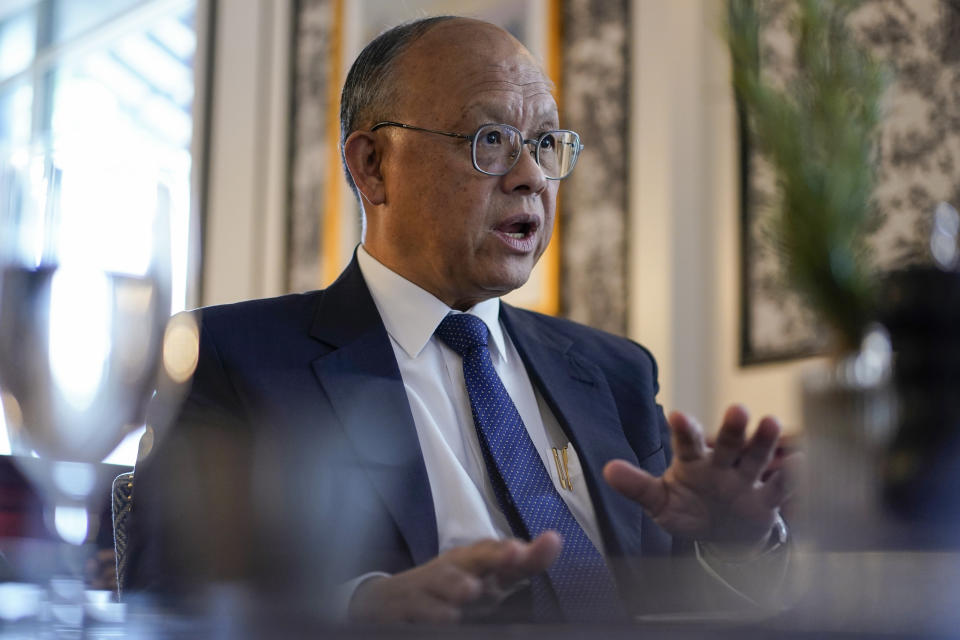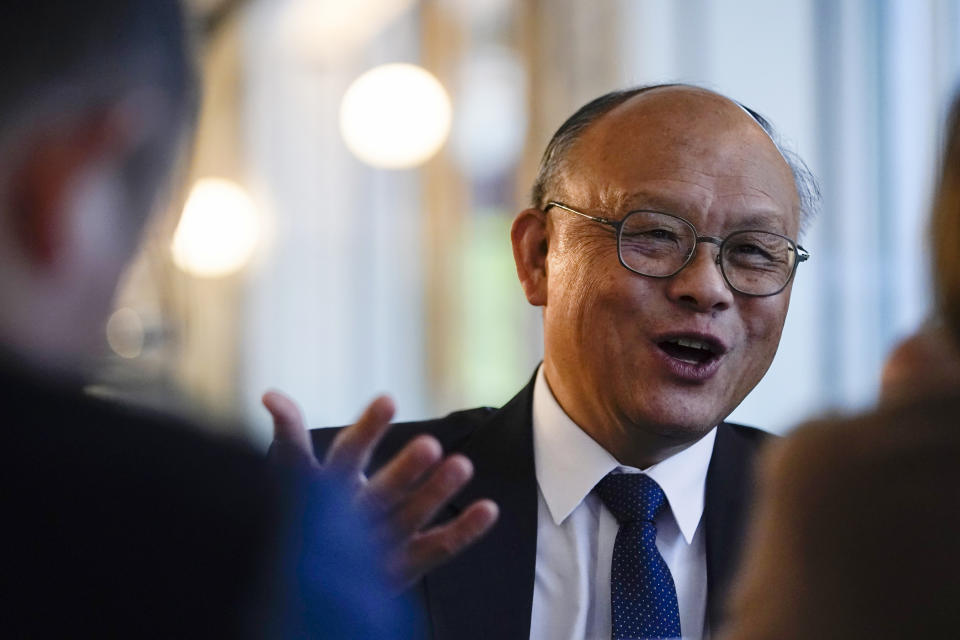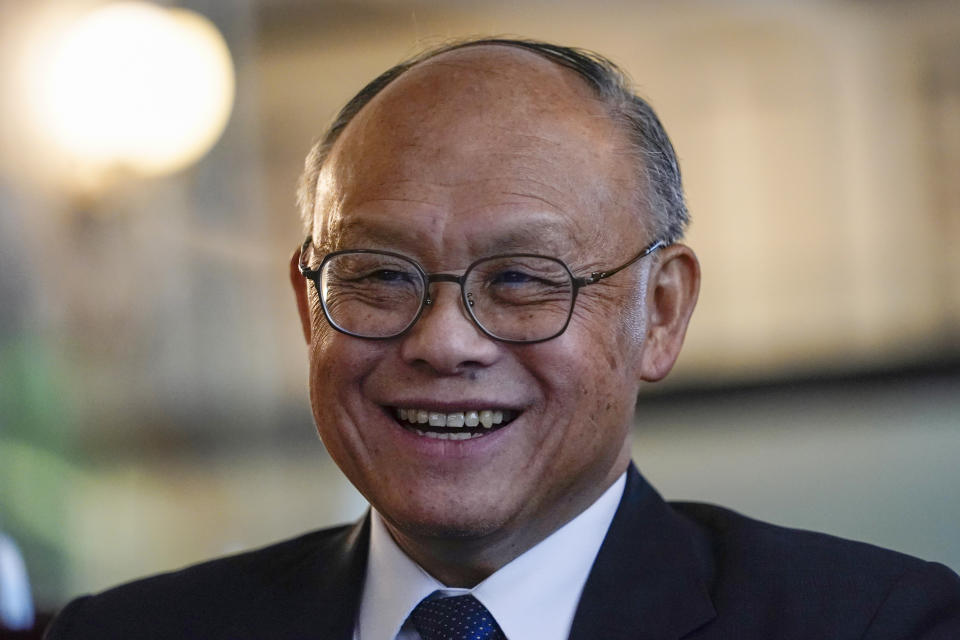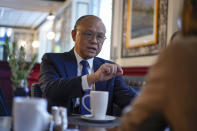Taiwan trade chief warns against 'unnecessary fear' of China
WASHINGTON (AP) — Taiwan's chief trade representative says his country's semiconductor makers will expand production in the U.S. as much as they can afford to do so, but he insists Taiwan remains an ideal place for that production and other U.S. trade, business and investment, despite tensions with China.
John Chen-Chung Deng spoke to The Associated Press on a visit this week to Washington, where he is leading a Taiwanese trade delegation and meeting with U.S. trade officials.
Deng's visit comes at a time of intensifying efforts to harden the U.S. and Taiwanese militaries and economies against any threat from rival China. As part of this, President Joe Biden and Congress are moving to boost semiconductor production on U.S. soil in the event of any conflict disrupting exports from Asia, especially from Taiwan.
Semiconductors make electronics ranging from phones to electric cars to advanced weapons run, and Taiwan produces more than 90% of the world's more advanced semiconductors.
At the same time, Pentagon leaders have been touring the Indo-Pacific to rally regional allies in bolstering military defenses and deterrence. A House committee last month war-gamed a hypothetical attack by China on Taiwan and U.S. positions as part of a bipartisan congressional effort to find specific ways to boost deterrence.
Deng said Americans should see these efforts as ensuring that Chinese President Xi Jinping will never feel confident enough to invade Taiwan, which China claims as its own.
“We should avoid any exaggeration or rhetoric which doesn’t reflect the true situation, that creates fear ... unnecessary fear,” said Deng.
He said the U.S. business community in Taiwan assures him it is still expanding and hiring. He cited the experienced workforce and support industries that Taiwan offers for semiconductor producers and for Google, Amazon and other U.S. businesses on its soil.
Relations between the U.S. and China have hit dramatic peaks in tensions over the past two years as Xi's government asserts China's growing strength economically, diplomatically and militarily. That includes China underscoring its broad territorial claims in the region.
China, for its part, accuses the U.S. of meddling in its internal affairs and pursuing a containment strategy against China to prevent its rise.
Taiwan and China split in 1949 after a civil war and have no official relations. They are linked by billions of dollars in trade and investment. The Chinese Communist Party regularly flies fighter planes and bombers near Taiwan to enforce its stance that the island is obliged to unite with the mainland, by force if necessary.
The Biden administration and Republicans and Democrats in Congress broadly support strengthening the U.S. and Taiwanese positions in the region to discourage any Chinese invasion of the island.

 Yahoo Autos
Yahoo Autos 